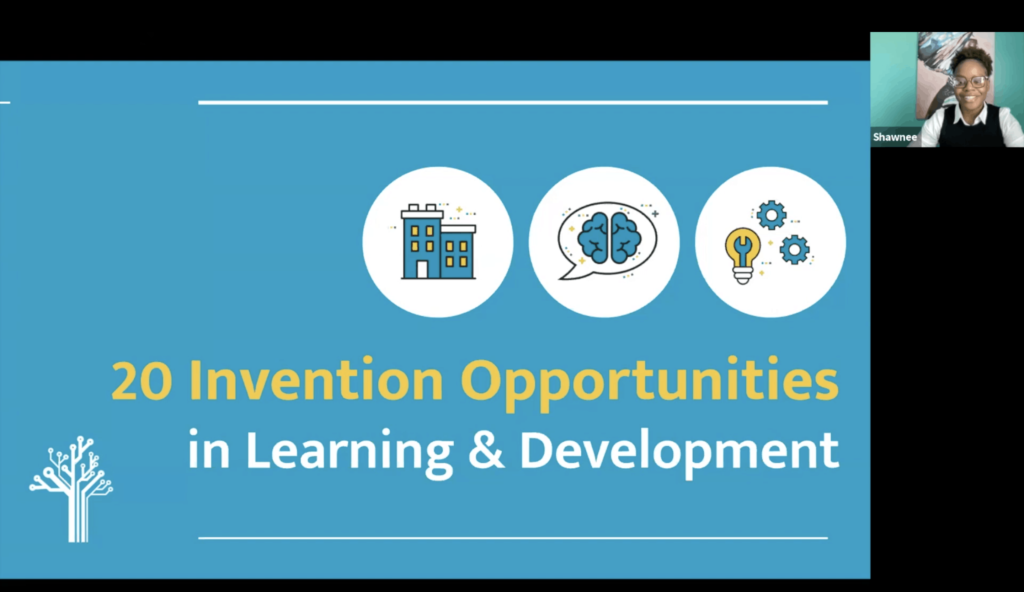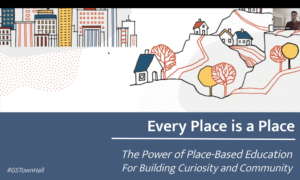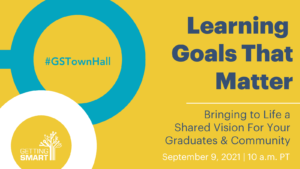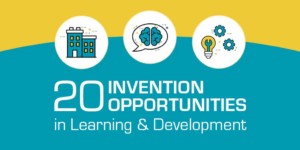Town Hall Recap: The Invention Opportunity

Invention by Shel Silverstien
I’ve done it, I’ve done it!
Guess what I’ve done!
Invented a light that plugs into the sun.
The sun is bright enough,
The bulb is strong enough,
But, oh, there’s only one thing wrong…
The cord ain’t long enough.
In partnership with eduInnovation, we recently published a new report called 20 Invention Opportunities in Learning & Development, supported by the Walton Family Foundation and the Bill & Melinda Gates Foundation. To dig deeper, and garner additional contributions, we hosted a town hall. You can check out some of the outstanding resources mentioned by attendees on the call here.
In the report, we, alongside a group of contributors, argue that we have to come to terms with what’s happening in our communities and whom it is happening to. Our new reality is a shared one and it is a call for public, trusted information. “Only when we feel enrolled in community can we really share a sense of shared reality,” said Tom Vander Ark during the town hall.
Through this event we were able to highlight outstanding initiatives that we found out about after the report like, 100 Days of Conversation a wonderful way to craft agreements within community using the powerful cortico.ai tool.
Part of our study of the invention opportunity circled around funding: “We need some new funding pathways to help schools to succeed rather than a public humiliation strategy,” said Tom Vander Ark.
We also were able to cover how 2020 has brought to the forefront the importance of student agency. “Agency is a promise we make to learners for how they will ultimately leave our learning environment,” said Rebecca Midles.
One of the attendees, Mark Lang, added: “Kids are learning a lot in these times, maybe just not what we are trying to teach them. Which is more important?” An essential question to be asking for calibration and design.
Much of the conversation focused on the immense opportunity in Portraits/Profiles of a Graduate. The case was made for more youth leadership opportunities in Portraits of a Graduate and an attendee, Kellye Crockett, mentioned some work she is supporting: “With a teacher/coach students build their own course to incorporate their own experiences. Often the most impactful experience of a student’s high school career.”
One of the attendees, Scott Van Beck, asked “We were working on Profiles of a Graduate in Houston back in the 90’s. We could never get alignment between the desired profile and the coursework kids worked on while they were in school. How can this movement be different?”
In response, we highlighted Big Picture Learning’s ongoing learner experience and graduate profile work, as well as Keith Nuthall’s innovations with Odyssey STEM and Del Lago Academy — a few examples of the extraordinary work being done by innovators across the world.
Pat Fitzsimmons, a town hall attendee said, “Students were the ones who suggested Well-Being as an attribute of Vermont’s Portrait of a Graduate.” This was one of many times in which the participants called for more student participation EARLY in the design process. This echoed a sentiment that we have been making often over the last couple of years with our Difference Making initiative (and accompanying book) and Tom summed it up perfectly with “We think the goal of school should be to help kids know who they are and where they want to make their contribution […] “how has the world changed and what does that mean to us and our young people? We must be learning and leading out loud (through reflection and action).”
In order to get started on some of these ideas, attendee Kenneth Jones shared: “You have to begin the conversations in order to assess organizational readiness. Then you design the processes that will enable the system (inclusive of the community) to begin to envision a better future.”
We received, and continue to think about, some of the following questions:
- “Community engagement: What are the best clear/concise/brief resources we can use to help parents see how the rapidly changing world requires new approaches to schooling?” – Steve Shapiro
- “How can we at local schools help cause a shift toward more meaningful accountability measures?” – Matthew Watson
- “Instead of one size fits all, why not let learners/families decide what measurement track is right for them in any given area – Essential, Next Level, Advanced?” – Allison Walker
- “What about transportation? It continues to be a huge obstacle to more fluidity in place-based education.” – Kellye Crockett
- “There is so much here. How do we decide where we should be starting?” – Matthew Morin
At one point in the town hall, Dennis Toney asked “What about more rural areas? How would this work?” One potential answer to that question was a rise in microschools and p-tech opportunities. We will be going deeper into the power, potential and pitfalls of microschools on our next Getting Smart Town Hall on April 1st. You can register here. See you next month!
For more, see:
Stay in-the-know with innovations in learning by signing up for the weekly Smart Update.







0 Comments
Leave a Comment
Your email address will not be published. All fields are required.